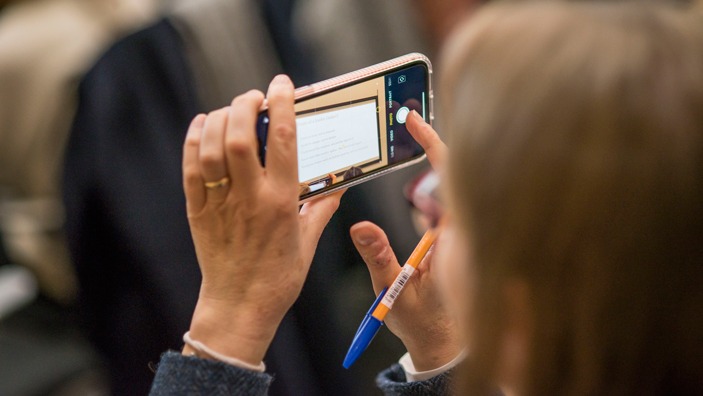What can we learn from our participants?
Creating surveys for female researcher-entrepreneurs is crucial because it allows us to gain a comprehensive understanding of the unique challenges they encounter during their early-stage entrepreneurial journeys.

Probing questions for valuable insights
By collecting your insights and experiences, we can pinpoint specific obstacles related to gender disparities, access to resources, networking opportunities, and societal expectations. These surveys provide a platform for women to voice their concerns and share their perspectives, empowering them to advocate for change.
To convert this data into usable insights for knowledge exchange, we can analyse the survey responses to identify common themes and patterns. From there, we can develop tailored support, mentorship initiatives, and policy recommendations that address the specific needs and barriers faced by female researcher-entrepreneurs.
Ultimately, this proactive approach promotes inclusivity, fosters innovation, and contributes to a more equitable entrepreneurial ecosystem, benefitting both the individuals involved and society as a whole.
We expect to cover topics and themes around some of these known challenges and document responses from surveys to inform other initiatives as well as our own. Here’s an outline of some of the questions we’d like to dive into.
- How do societal expectations and gender stereotypes impact our self-perception as entrepreneurs?
- What strategies can help us build confidence and resilience in a male- dominated business world?
- How can we balance ambition and assertiveness without being labelled negatively?
- How can we prioritise self-care and wellness to maintain our physical and mental health?
- What are effective stress management techniques that have worked for you?
- How can we create a supportive community for discussing mental health challenges in entrepreneurship?
- How do we address bias in the workplace, in pitches, and in negotiations?
- What are effective strategies for advocating for ourselves in situations where bias is present?
- How has gender bias been encountered in networking events or meetings?
- What can we do to amplify the voices of women of colour, LGBTQ+ women, and other underrepresented groups?
- How does intersectionality impact the challenges and opportunities women face as entrepreneurs?
- How can we challenge the “superwoman” myth and create more realistic expectations for ourselves?
- How can we manage disproportionate caregiving, especially during the early stages of entrepreneurship?
- How can we redefine success to align with our personal values and goals?
- How do we balance financial success with social and environmental responsibility?
- What are the benefits of connecting with other women entrepreneurs, and how can we expand our networks?
- What role can male allies play in supporting women entrepreneurs, and how can we engage them effectively?
- How can we collaborate and support each other to overcome resource limitations?
- What challenges have you faced in accessing funding, mentorship, or networking opportunities?
- How important is mentorship, and what qualities should we look for in a mentor
- How do we encourage more women to step into mentorship roles for aspiring entrepreneurs?
- Who are some successful women entrepreneurs that we can learn from and be inspired by?
- How can we stay agile and adaptable in a rapidly changing business landscape?
- What strategies can help us pivot our businesses when necessary without fearing failure?
Participant perspectives
- Thematic analysis: Identify recurring themes and patterns that encapsulate collective experiences and insights.
- Narrative analysis: Understand personal stories drawing cohesive narratives illustrating entrepreneurial journeys from a gender-specific perspective.
- Mentorship and networking: Number and quality of mentoring relationships established during the programme. Expansion of professional networks.
- Resource access and utilisation: Access to and utilisation of entrepreneurship resources (skills, training, funding, mentorship, networking, business support).
- Gender bias assessment: Capture experiences of gender bias (overt and subtle) and analyse impacts.
Programme perspectives
- Demographic analysis: Demographic data (age, educational or research background, field) to understand diversity within the group to tailor support or recruitment accordingly.
- Resource allocation analysis: Allocation of workshop resources (time spent on specific topics, guest speakers, mentorship sessions) to assess which components had most significant impact on outcomes.
- Participant feedback analysis: Feedback on perceptions of the workshops and the programme as a whole, what was most valuable, and areas for improvement to inform future workshop design and content.
Workshop leaders’ insights
Each workshop leader is we invited to write a blog covering the ideas, concepts and insights (learn, action or explore) that are covered in the session along with her reflections on the application, analysis or optimisation activity of the participants in response to her workshop.
Blogs are posted on the CJBS EnterpriseWOMEN webpages and may be accompanied by short video introductions.






